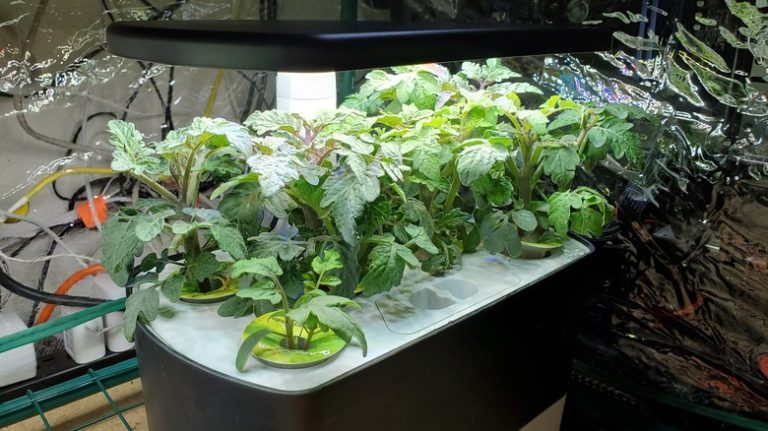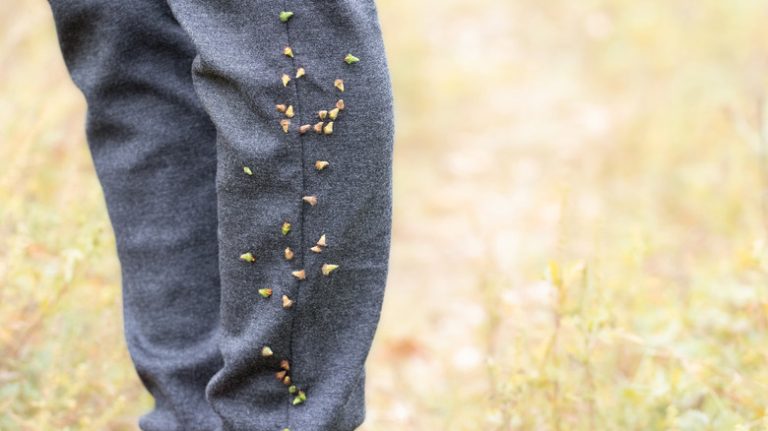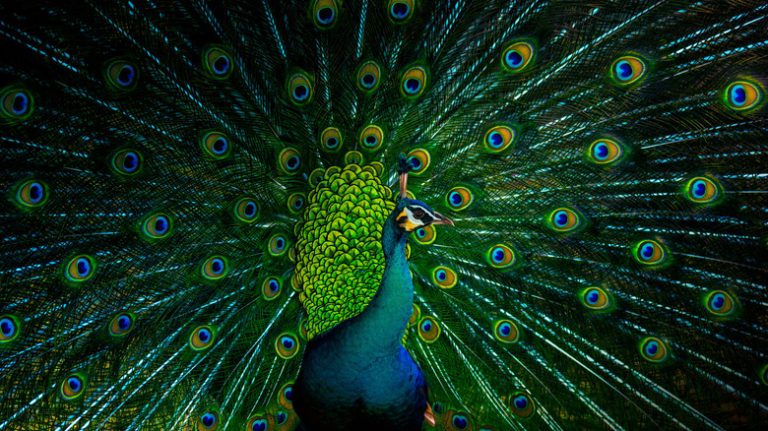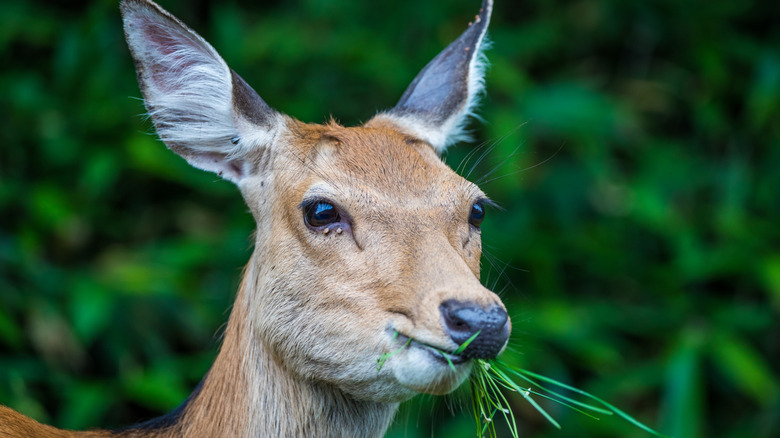
Everyone grows up knowing the difference between herbivore, carnivore, and to a lesser extent, omnivore animals. This is particularly true if you were fascinated by dinosaurs at an early age, where distinguishing between carnivores and herbivores is a key part of learning about prehistoric creatures. It seems straightforward: animals that eat plants are herbivores, those that eat meat are carnivores, and omnivores consume a mix of both.
However, it turns out that herbivores are, in some cases, secret omnivores. This means there are various situations where plant-eaters will resort to consuming meat for nourishment, although this is quite rare. This might appear strange given the clear distinction between these dietary categories, which shapes our understanding of animal life. Moreover, many herbivores have evolved specifically to consume plants, not meat, which should make their occasional carnivorous diet even more unlikely. Deer and cows, for instance, belong to the ruminant group of animals, characterized by having a specialized organ known as a rumen. This chamber, located before the stomach, contains a mixture of bacteria, fungi, and protozoa that convert plant polysaccharides into fatty acids, providing the main energy source for these animals. As such, one wouldn’t expect these animals to eat meat given their specialized anatomy, yet it occurs, and there are several reasons why.
Food scarcity can turn some herbivores into meat eaters
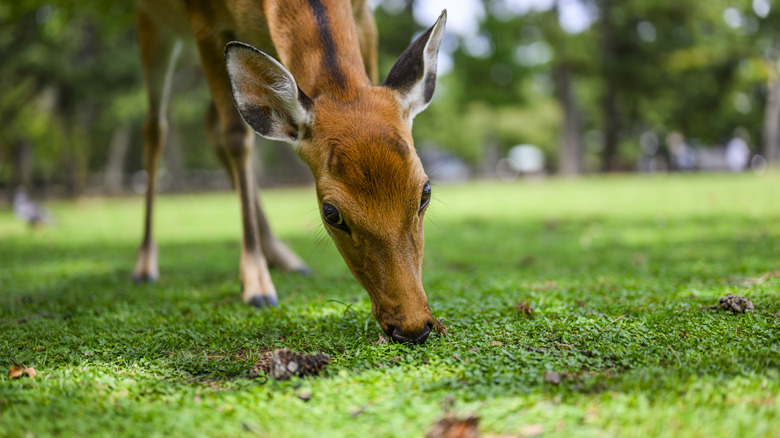
It’s uncommon for herbivores to consume meat, especially given that in many instances their bodies are adapted to process plant matter. Nevertheless, while it’s rare for plant-eaters to turn to meat, there are numerous examples of this occurring. From hippopotamuses to deer, known herbivores have been observed consuming meat on various occasions. Why might this occur? Well, there are actually quite a few reasons.
The most apparent reason is simply “because it’s there.” Opportunistic meat consumption by plant eaters is a known phenomenon, especially when these animals face a scarcity of their typical food. Deer are a prime example. These animals typically feast on a variety of forage and possess specific physical traits to do so effectively, such as their narrow snout, long tongue, and salivary glands that produce enzymes to neutralize plant compounds like tannins that could potentially irritate their digestive system. However, deer have also been known to consume bird eggs or carrion when forage is scarce. In some cases, they have even been observed eating other dead deer. More disturbingly, a report in the Journal of Forensic Sciences confirms an instance of a deer ingesting human remains. These behaviors are almost always due to plant scarcity and are certainly not typical for deer.
Other reasons why herbivores will eat meat
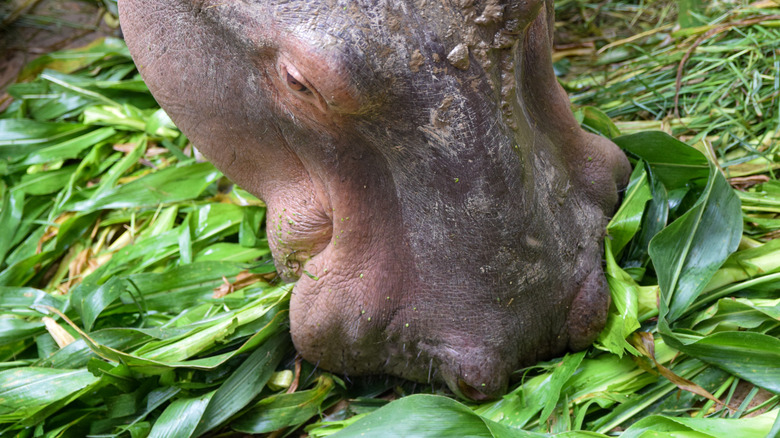
It’s not just a lack of their usual food source that can turn herbivores into carnivores. There are other reasons why plant eaters might deviate from their typical feeding habits, although these reasons aren’t as significant as food scarcity.
One example is mineral supplementation. Omnivores often benefit from consuming both plants and meat when their primary food is scarce, but herbivores may turn omnivorous when they require specific nutrients not available from their forage. “Zoophagy” describes animals feeding on other animals, and herbivores might adopt this diet to seek out minerals absent from their plant-based diet. According to Montana Outdoor, some animals might consume insects while visiting salt licks to obtain necessary minerals, although the ingestion of insects might be accidental.
Plant eaters can also be influenced by the behavior of surrounding animals and their own kind, learning to consume meat by observing other creatures. In recent years, experts have discovered that hippos eat more meat than previously thought. These animals primarily consume a grass-heavy diet and are considered obligate herbivores, meaning they typically eat only plant matter. However, a 2015 study in Mammal Review notes that field studies have observed hippos consuming flesh and intestinal tissues from other animal carcasses, with researchers indicating this behavior pattern is associated with communal feeding.
The only other reason a herbivore might consume meat relates to health issues. If an animal experiences health problems, it might engage in what Montana Outdoor describes as “aberrant behavior,” although this is also quite rare. Therefore, while many herbivores are, in fact, secret omnivores, their entire anatomy is primarily evolved to consume plant matter, and there’s no need to rethink the herbivore/carnivore/omnivore classification — except possibly for hippos.




